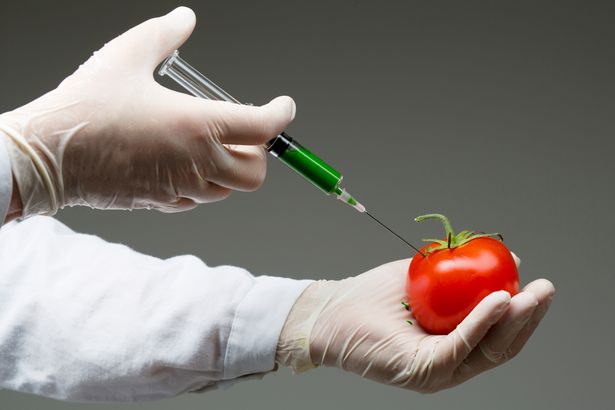-
Tips for becoming a good boxer - November 6, 2020
-
7 expert tips for making your hens night a memorable one - November 6, 2020
-
5 reasons to host your Christmas party on a cruise boat - November 6, 2020
-
What to do when you’re charged with a crime - November 6, 2020
-
Should you get one or multiple dogs? Here’s all you need to know - November 3, 2020
-
A Guide: How to Build Your Very Own Magic Mirror - February 14, 2019
-
Our Top Inspirational Baseball Stars - November 24, 2018
-
Five Tech Tools That Will Help You Turn Your Blog into a Business - November 24, 2018
-
How to Indulge on Vacation without Expanding Your Waist - November 9, 2018
-
5 Strategies for Businesses to Appeal to Today’s Increasingly Mobile-Crazed Customers - November 9, 2018
Boffins invent new ‘super tomato’ to help fight killer diseases including cancers
A study led by John Innes Centre researchers in the United Kingdom has led to the mass production of natural compounds in a single, genetically modified fruit – a tomato.
Advertisement
Specific enzymes with encoded genes were added to switch on production of resveratrol or genistein, and the researchers believe this technique could be used to form the basis of more medicines.
The researchers noted that the introduction of the AtMYB12 protein not only increased the ability of the plant to create the resveratrol and genistein, it also influenced the ability of the plant to devote more carbon and energy in the compound creation. The AtMYB12 acts like a plug or tap that scientists can control to reduce or increase the amount of natural compounds that can benefit the plant and in turn, humans.
Dr. Yang Zhang and colleagues have found a way to make one tomato produce the same quantity of resveratrol as exists in 50 bottles of red wine, or the same amount of genistein found in 2.5 kg of tofu. It may also be an effective supplement to fight cancer, heart conditions, Alzheimer’s disease and diabetes, but these claims are yet to be scientifically proven as there are still mixed opinions on the effects of Resveratrol.
Earlier studies indicated lycopene in tomatoes might help in cancer prevention and further research is continuing. Genistein, a substance found in soyabean, is under investigation for its role in preventing breast cancer and other cancers related to steroid hormones.
“Our study provides a general tool for producing valuable phenylpropanoid compounds on an industrial scale in plants, and potentially production of other products derived from aromatic amino acids”. “Our work will be of interest to different research areas, including fundamental research on plant engineering, medicinal plant, natural products and health research”.
The protein AtMYB12 activates a broad set of genes involved in metabolic pathways responsible for producing natural compounds that are useful for the plant.
Introducing the protein to tomatoes boosted levels of phenylpropanoids, a family of organic compounds that increases a range of plant chemicals.
Tomatoes are a high yielding crop – producing up to 500 tonnes per hectare in countries delivering the highest yields and require relatively few inputs.
Advertisement
The scientists hope they will provide a more cost-effective way of producing valuable plant compounds than synthesising them artificially or extracting tiny amounts from natural sources such as grapes and soybeans.





























